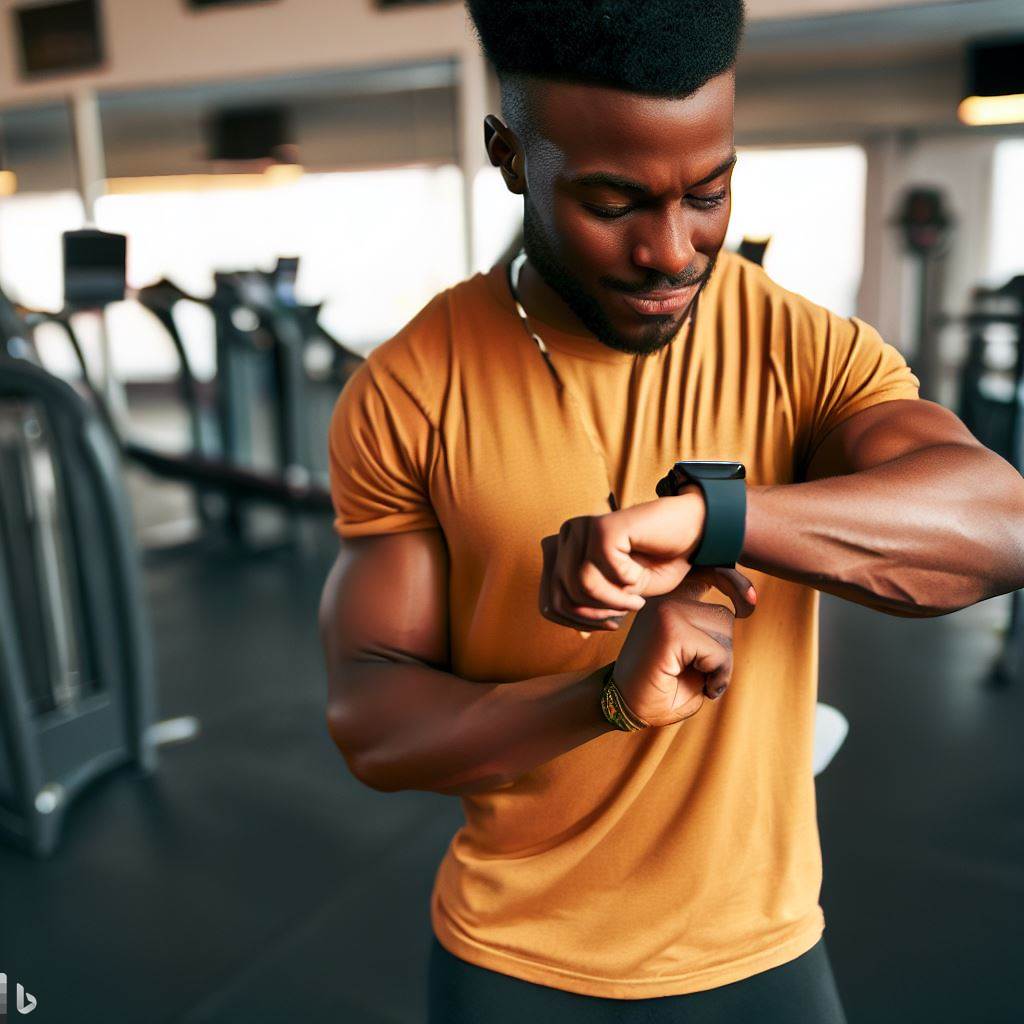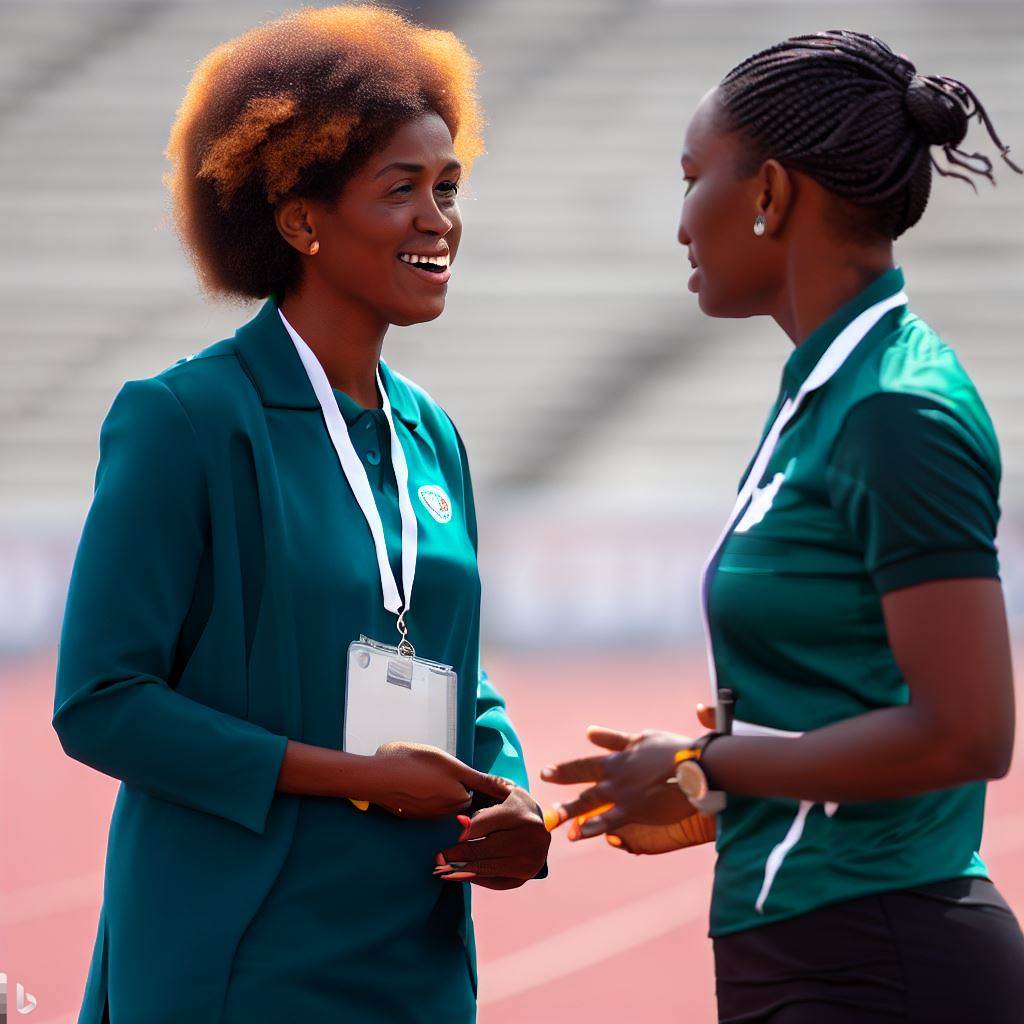Introduction
In today’s rapidly evolving world, technology has become an integral part of our daily lives.
It has impacted various sectors, including education, by revolutionizing teaching and learning methods.
The importance of technology in education cannot be overstated.
When we talk about education in Nigeria, physical education is an essential aspect that focuses on the development of physical fitness and skills.
It aims to promote an active and healthy lifestyle among students.
Nigeria has recognized the significance of physical education in fostering a fit and healthier nation.
With the integration of technology, physical education has witnessed a significant transformation in the country.
The use of technology has enhanced the learning experience, making it more interactive and engaging for students.
Technology in physical education in Nigeria has opened up new avenues for learning.
It has provided students with access to various resources and digital tools that enable them to explore different sports and physical activities.
Moreover, it has made physical education more inclusive, allowing students with disabilities to participate and benefit from the program.
Additionally, it has also made it easier for physical education teachers to monitor the progress and performance of their students.
They can utilize various tracking devices and apps to assess individual development and provide personalized feedback.
Overall, the integration of technology in physical education has brought about positive changes in Nigeria’s education system.
It has made the learning process more dynamic and interactive, while also promoting a healthier and fitter nation.
Current state of technology in physical education in Nigeria
Limited access to technology
In Nigeria, access to technology in physical education is limited, impeding the potential for innovation and growth.
Educational institutions often lack the necessary resources and infrastructure to provide technological tools for physical education.
Government funding for technology in schools is insufficient, leading to a scarcity of resources in the education sector.
Challenges faced by educators
Educators in Nigeria face challenges when incorporating technology into physical education. They lack training and knowledge in technology integration.
Technical support and maintenance are scarce. Many schools lack high-speed internet, hindering resource utilization.
Unreliable power supply disrupts learning.
The cost of equipment like computers and projectors is prohibitive.
Budget constraints prioritize other areas over technology.
Nevertheless, initiatives aim to enhance technology in Nigerian physical education.
Organizations provide resources and foster partnerships.
Training programs empower educators to integrate technology effectively.
These efforts empower educators to overcome barriers and enhance physical education through technology in Nigeria.
Read: Special Needs Education: PE Teaching in Nigeria
Integration of technology in physical education curriculum
In recent years, Nigeria has embraced technology in physical education, elevating student engagement and learning outcomes.
Technology makes lessons captivating by integrating interactive tools and applications. Gamification adds fun, enticing active participation.
It facilitates personalized learning through fitness trackers and mobile apps, fostering self-improvement. Instant feedback refines techniques, promoting swift skill development.
Moreover, technology fosters inclusivity, aiding students with disabilities. Interactive whiteboards and virtual reality headsets enable engagement through audio cues and haptic feedback.
Nigerian classrooms employ diverse technologies. Interactive whiteboards display multimedia content, encouraging participation. Fitness trackers monitor activity levels, providing real-time performance feedback.
Virtual Reality (VR) immerses students in various virtual environments, enhancing learning. Mobile apps offer exercise routines and nutritional guidance, promoting healthy habits.
Online platforms provide instructional resources and interactive exercises. In summary, technology enriches Nigeria’s physical education curriculum, enhancing engagement and outcomes.
Read: Tech in Sports Information: Nigerian Industry Innovations
Efforts to enhance technology in physical education in Nigeria
Government initiatives and policies
The Nigerian government has been taking several initiatives to enhance the use of technology in physical education.
These initiatives aim to provide quality education and promote a more active lifestyle among students.
One of the major initiatives is the provision of computers and internet connectivity in schools.
This allows students to access online resources, educational apps, and interactive learning platforms that can be utilized to enhance their physical education experience.
In addition, the government has introduced policies that encourage the integration of technology in physical education.
This includes the development of curriculum guidelines that include the use of technology tools and resources.
These policies also focus on promoting the professional development of teachers in utilizing technology effectively.
Partnerships with technology companies
To further enhance technology in physical education, Nigeria has also partnered with technology companies.
These partnerships aim to provide schools with the necessary tools and resources to integrate technology into physical education classes effectively.
Through these partnerships, technology companies provide schools with equipment such as sports tracking devices, virtual reality headsets, and interactive smartboards.
This enables students to engage in innovative physical activities and have a more immersive and interactive learning experience.
Additionally, technology companies offer training and professional development programs for teachers to enhance their technological skills.
This ensures that teachers are equipped with the knowledge and expertise needed to effectively integrate technology into physical education lessons.
These partnerships also include collaborations with local software developers to create educational apps and software tailored to the Nigerian physical education curriculum.
These apps provide students with interactive and engaging exercises and activities that promote physical fitness and healthy habits.
Furthermore, these partnerships facilitate research and development in the field of technology in physical education.
This enables Nigeria to stay updated with the latest advancements and trends in educational technology, ensuring that students receive the best possible education.
In essence, Nigeria has made significant efforts to enhance it.
Through government initiatives and policies, as well as partnerships with technology companies, the country is providing students with access to innovative tools and resources.
These efforts are paving the way for a more engaging and effective physical education experience, promoting a healthier and more active lifestyle among Nigerian students.
Read: Sports Information Director: Trends in the Nigerian Market

Success stories and case studies
Schools implementing technology in physical education
Using technology in physical education has proven to be successful in various schools across Nigeria. Here are some inspiring success stories and case studies:
- Covenant Hall High School: Covenant Hall High School in Lagos has embraced technology in their physical education classes. They have integrated fitness tracking devices and apps that allow students to monitor their daily physical activity and set fitness goals.
- Landmark International School: Landmark International School in Abuja has incorporated virtual reality (VR) into their physical education curriculum. They use VR headsets and motion-sensing technology to simulate various sports and physical activities.
- God’s Favour Secondary School: God’s Favour Secondary School in Port Harcourt has introduced gamification in their physical education classes. They use interactive gaming consoles and fitness video games to make exercise more fun and enjoyable for students.
Positive impact on student engagement and learning outcomes
Implementing technology in physical education has had a positive impact on student engagement and learning outcomes.
Here are some benefits observed:
- Increased participation: It has made physical education more interactive and engaging, leading to higher levels of student participation. Students are more motivated to actively participate in physical activities when technology is involved, as it adds an element of novelty and excitement.
- Personalized learning: It also allows for personalized learning experiences in physical education. Fitness tracking devices and apps enable students to set individual fitness goals and track their progress.
- Enhanced learning experience: Technology has transformed the learning experience in physical education. Students can access online resources, instructional videos, and interactive tutorials to expand their knowledge about fitness, nutrition, and sports.
- Real-time feedback: Technology provides instant feedback to students during physical activities. Fitness trackers monitor heart rate, calories burned, and steps taken, giving students immediate feedback on their performance.
- Collaboration and competition: Technology fosters collaboration and healthy competition among students. Fitness apps and gaming consoles allow students to compete with their peers, set challenges, and compare their progress. The social aspect of it in physical education encourages teamwork and builds camaraderie among students.
Generally, the successful implementation of it in physical education has brought forth numerous positive outcomes in Nigerian schools.
The use of fitness tracking devices, virtual reality, gamification, and online resources has increased student engagement, personalized learning experiences, and improved overall learning outcomes.
The incorporation of technology has transformed physical education into a more interactive, enjoyable, and effective educational discipline.
Read: Adapting to COVID-19: PE Teaching in Nigeria Today
Overcoming challenges and addressing limitations
Educators in Nigeria can acquire tech skills via training and collaboration with experts for effective tech integration in physical education.
Continuous professional development is crucial. Encourage attendance at tech-focused conferences for networking and best practices sharing.
Partnerships with international organizations can facilitate exchange programs, exposing educators to global teaching methods and tech innovations, benefiting students.
Address infrastructure limitations, develop a national strategy for school infrastructure, and secure funding for modern tech equipment.
Collaborate with government and the private sector to create affordable tech solutions for all students. Set policies prioritizing tech integration in the curriculum.
Seek partnerships with tech companies to provide schools with cutting-edge devices and software for enhanced teaching and learning.
Through these efforts, Nigeria can overcome challenges, improve infrastructure, and ensure tech access, benefiting students in physical education.
Advancements and emerging technologies
- Virtual reality (VR) can be incorporated to provide realistic and immersive experiences for students.
- Wearables such as fitness trackers can be used to monitor students’ physical activities and provide personalized feedback.
- Augmented reality (AR) can enhance the learning environment by overlaying digital content onto the real world.
- Gamification can be implemented to make physical education more engaging and enjoyable for students.
- Mobile applications can be developed to provide easy access to exercise routines and health tips.
- Video analysis tools can be used to provide comprehensive feedback on students’ performance in various sports activities.
- Robotics can be utilized to develop interactive training equipment and assist in physical education instruction.
Strategies to further integrate technology in physical education
- Continuous professional development programs should be offered to physical education teachers to enhance their technological skills.
- Collaboration between physical education teachers and technology experts should be encouraged to develop innovative solutions.
- Adequate funding should be allocated to procure the necessary technology devices and tools for physical education classrooms.
- Partnerships with technology companies can be formed to gain access to the latest advancements and resources.
- Research and pilot studies should be conducted to evaluate the effectiveness of integrating technology in physical education.
- Curriculum redesign should prioritize the inclusion of technology-related skills and knowledge in physical education programs.
- Government support and policies should be in place to promote the integration of technology in physical education across schools in Nigeria.
In short, the future prospects for technology in physical education in Nigeria are promising.
The advancements in emerging technologies such as virtual reality, wearables, and augmented reality offer new opportunities for enhancing the learning experience.
By implementing strategies to further integrate technology, such as providing professional development for teachers and securing adequate funding, the potential benefits for students’ physical education can be maximized.
It is crucial for stakeholders including teachers, policymakers, and experts to collaborate and work together in order to realize the full potential of technology in physical education in Nigeria.
Gain More Insights: COVID-19’s Effect on Sports Information Profession in Nigeria
Future Prospects and Recommendations
Advancements and Emerging Technologies
- Wearable Fitness Tech: Integrate wearable devices like fitness trackers and smartwatches to monitor student performance and health.
- Virtual Reality (VR): Implement VR simulations for immersive physical education experiences, enhancing engagement and skill development.
- Mobile Apps: Develop custom mobile apps for students to access workout routines, track progress, and receive real-time feedback.
- AI Coaching: Utilize artificial intelligence for personalized coaching, offering tailored exercise plans and corrective guidance.
- Gamification: Gamify physical education with interactive fitness games, promoting healthy competition and motivation.
- Biometric Sensors: Incorporate biometric sensors to measure heart rate, body temperature, and other vital metrics during workouts.
Strategies to Further Integrate Technology in Physical Education
- Teacher Training: Conduct regular training sessions to equip educators with the latest tech tools and teaching methodologies.
- Digital Curriculum: Develop a comprehensive digital curriculum that incorporates technology seamlessly into lesson plans.
- Accessibility: Ensure equal access to technology for all students, addressing socio-economic disparities.
- Student Engagement: Foster active participation by integrating tech-driven interactive elements into physical education.
- Continuous Evaluation: Regularly assess the effectiveness of technology integration through feedback and data analysis.
- Collaborative Platforms: Encourage collaboration among educators to share best practices and innovative ideas.
In embracing these advancements and implementing these strategies, Nigeria’s physical education system can propel itself into a technologically-driven future, ensuring holistic development and improved health outcomes for its students.
Find Out More: Networking Tips for Nigerian Strength Coaches
Conclusion
Importance of technology in physical education
Throughout this article, we have explored the significance of integrating technology into physical education.
From wearable devices that track students’ fitness levels to interactive software that enhances learning, technology has proven to be a valuable tool for enhancing the overall experience of physical education.
Possibilities for Nigeria to lead in this area
As we have outlined in this article, Nigeria has the potential to become a leader in incorporating technology into physical education.
With the right investment in infrastructure and training for both teachers and students, Nigeria can take advantage of the numerous benefits that technology offers in this field.
By embracing technology, Nigeria can not only improve the quality of physical education but also position itself as an innovator in the global education landscape.
By leveraging technology to enhance physical education, Nigeria can address the challenges it faces, such as limited access to sports facilities and a shortage of qualified teachers.
Furthermore, technology can help to motivate students, promote inclusivity, and provide personalized learning experiences. It also allows for the collection of data, enabling educators to assess students’ progress and make informed decisions.
In summary, the incorporation of technology has the potential to revolutionize the way students learn and participate in physical activities in Nigeria.
By embracing this approach, Nigeria can not only bridge education gaps but also empower its future generation to lead healthier and more active lifestyles.




